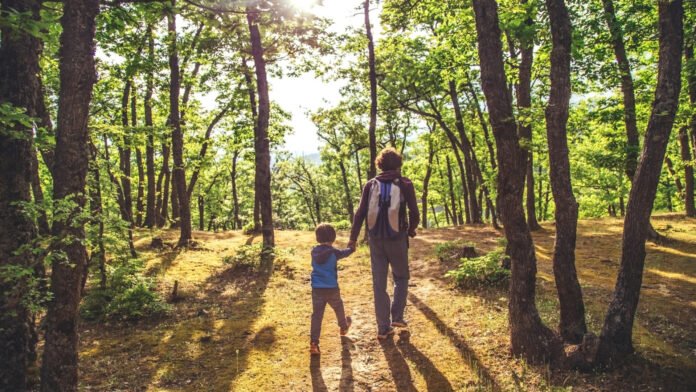A new study led by Oregon State University found evidence that spending time outdoors isn’t just good for your mood; it’s also essential for mental health, especially during times of crisis.
Published in PLOS One, the research tracked how U.S. adults engaged in outdoor recreation during the COVID-19 pandemic and found a clear connection: Those who spent more time in green spaces had lower stress and fewer depressive symptoms.
“Even after controlling for numerous COVID-specific risk and protective factors, outdoor recreation emerged as an important protective factor for mental health during the crisis,” said lead researcher Xiangyou (Sharon) Shen, assistant professor in OSU’s College of Forestry.
The study, part of the project Play2Cope, surveyed a nationally representative group of adults during the pandemic’s second wave in early 2021. It found that people adapted by leaning into near-home outdoor activities such as walking and gardening, with walking alone making up 57% of reported recreation. That’s proof that access to nearby parks and green spaces can be a form of “behavioral medicine.”
The study is a hopeful takeaway at a time when many headlines around health and the environment can feel bleak. Like forest bathing or gardening therapy, this study reinforces that some of the best tools for mental well-being are right outside your front door.
The research also highlights an important equity issue: Outdoor engagement fell most among people experiencing financial troubles and in communities of color, which could explain the disproportionate mental health impacts these groups experienced during the pandemic.
“This raises concerns about the persisting effect of structural inequity in people’s ability to engage in outdoor recreation as a health behavior,” Shen said. “It is crucial to maintain or even increase access to outdoor recreation spaces during future crises like the COVID-19 pandemic, especially in park-poor areas or communities where vulnerable groups concentrate.”
“Our research shows that outdoor recreation isn’t some kind of bonus, it’s a public health necessity,” Shen explained.
“During the COVID-19 pandemic, when traditional mental health services were strained and social connections were limited, outdoor recreation served as a critical buffer against psychological distress. Policymakers who want to improve population mental health and advance health equity should prioritize outdoor recreation access with the same urgency they apply to other essential health services.”
Join our free newsletter for good news and useful tips, and don’t miss this cool list of easy ways to help yourself while helping the planet.






